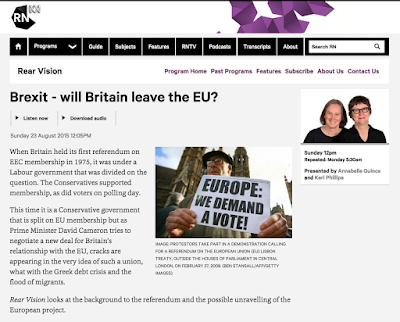British Generals in Blair'sWars by Jonathan Bailey, Richard Iron and Hew
Strachan (eds). Farnham: Farnham, 2013. 385pp., £19.95 (p/b), ISBN 978 1 4094
3736 9
In the time that Britain has been awaiting the outcome of
the Chilcott Inquiry a plethora of books has emerged to serve as primers to the
report into Britain’s role in the Iraq War. High
Command and British Generals in
Blair’s Wars are two members of this growing collection of works written by
the former soldiers, politicians and civil servants who played a part in
Britain’s involvement in the post-9/11 conflicts. Linking the books, both products
of Oxford University’s ‘Changing Character of War programme’, is an attempt to
get to grips with how Britain, and in particular the British Army, found
themselves in the mess they did in both Iraq and Afghanistan. In neither
conflict were Britain’s strategic ends, ways and means clearly defined or
adequately provided for. As both books argue, this was not simply the result of
failings by Prime Minister Tony Blair or other individuals such as senior
officers and civil servants. Their failings were part of a dysfunctional
relationship within and between the political and operational levels of these
conflicts. The result was that on a good day all that Britain and her military
could do was muddle through. On the bad days – of which there were many – it
led to unnecessary deaths and strategic defeat.
High Command:
British Military Leadership in the Iraq and Afghanistan Wars takes
us into the inner workings of the Ministry of Defence (MoD) and British military.
By exploring such issues as poor management, difficult career structures,
laughable procurement systems, sloppy training, doctrine and thinking,
long-running funding inadequacies, strained relations with the rest of
Whitehall and so forth, the book not only gives an insight into the MoD (one
familiar to anybody with knowledge of UK defence matters) but in doing so picks
over a political-bureaucratic-military system that was destined to fail in
Afghanistan and Iraq. Christopher Elliott’s analysis is of an institution where
nobody seems to have been in charge and where senior officers can today claim
to have been in the dark over major strategic decisions. While a great deal of
blame can be and is directed at Blair, as Elliot points out, senior officers
tolerated a dysfunctional MoD that made things worse. These officers receive
some analysis, but Elliot doesn’t stick the bayonet into whoever he thinks is
most to blame. Instead he sets out each officer’s strengths and weaknesses,
mistakes and sound decisions. This is despite him rightly pointing out that no
senior officer (or civil servant or politician) has been demoted, sacked,
disciplined, charged or faced any other form of official punishment for
failings in Iraq and Afghanistan. Sadly, the book’s recommendations for changes
have been overtaken by actual reforms, some of which happened long before the
book was published.
British Generals in
Blair’s Wars provides us with more detailed mini autobiographies of recent
senior officers. Drawing on their experiences of conflicts since 1990, albeit
with a focus on Iraq and Afghanistan, the book offers insights from 23 senior
officers with a few pieces from others. The chapters vary in quality, some
better written and more cerebral than others. Given the breadth of experience
on offer it comes as no surprise that each chapter’s conclusions can often be
more wide-ranging than the narrow focus of the case study presented within the
preceding pages. The result is a book that can be read as a series of pleas to
future commanders to learn the lessons from an exceptional time for the British
Army; exceptional in no small part because as junior officers these authors
prepared to play a bit part in a global nuclear war and not the conflicts that
defined the culmination of their careers. Officer education (or lack of it),
learning from past mistakes and the challenge of adapting to the changing
character of war arise throughout the book. Learning requires open and frank
discussion, which is not easy when the MoD appears hostile to investing in
training or allowing open discussion. It is no surprise that the MoD refused to
allow six contributions from serving officers to be published in the volume.
These books, then, are about decision making in conflicts
where the political direction was vague because of the inherent ambiguity of
most high-level political strategy; where the political, operational and
tactical levels of strategy were confused; where public support has been questionable
and vulnerable; where the limited ways and means – especially money – available
has meant that British blood has been cheaper than British treasure; where
planning and doctrine have been dubious, untested or long neglected; where the
military’s ‘can do’ attitude meant officers had an itch for fighting which
sometimes led them to take the initiative without political support; and where
decisions and actions have depended on allies and, most difficult of all, local
political developments. Such problems are to be found in many states which have
their military deployed overseas, and consequently these books will be of
interest far beyond the UK.












